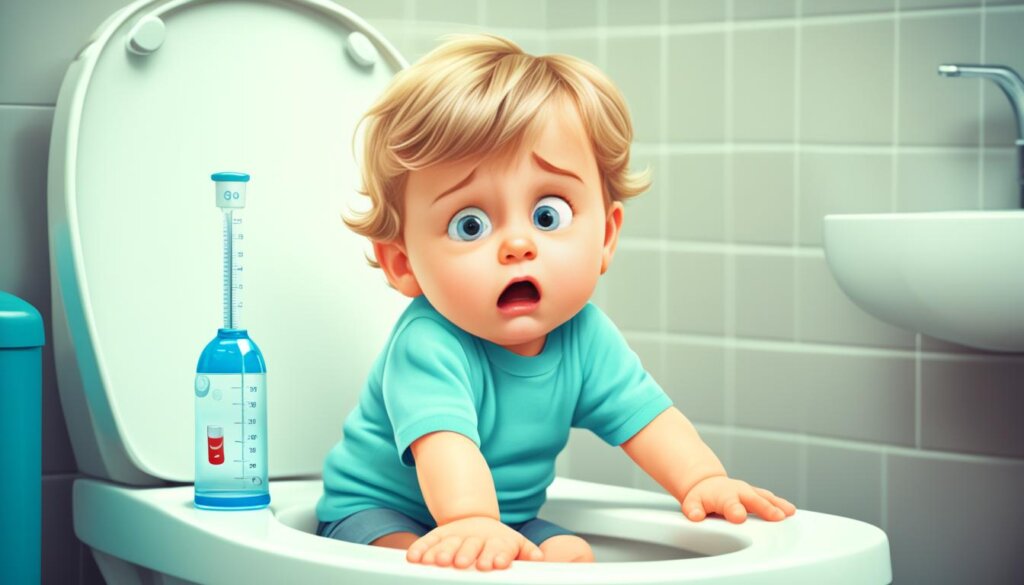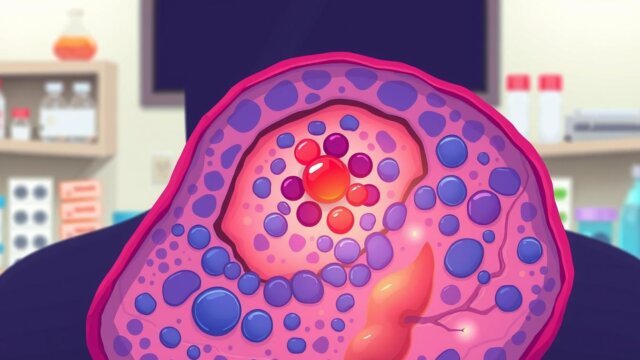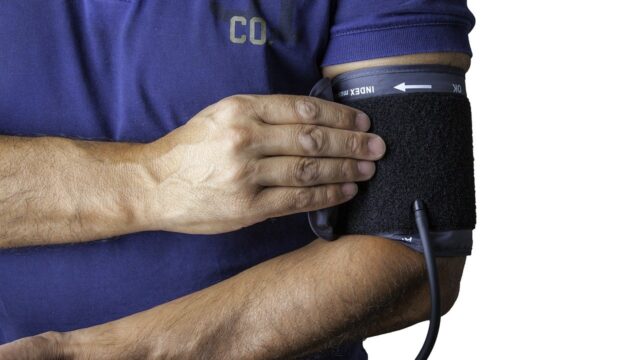FTC disclaimer: This post may contains affiliate links and we will be compensated if you click on a link and make a purchase.
Diarrhea is a common digestive issue that affects millions worldwide. Every year, there are about 2 billion cases globally. This issue, seen as loose, watery stools, has many causes. It ranges from infections to side effects of medications and digestive disorders. It’s especially worrisome for children under 5, being the second leading cause of death in this age group.
Typically, diarrhea is not a serious problem. But, it can lead to dehydration, which is dangerous, mostly for young children, older adults, and people with weak health. It’s crucial to know about the causes, signs, and ways to treat diarrhea. This knowledge is vital for keeping our digestive system healthy.
Key Takeaways
- Diarrhea is a common digestive issue that can have various underlying causes, including viral, bacterial, and parasitic infections, as well as medications and underlying conditions.
- Diarrhea can lead to dehydration, which is a serious concern, particularly in children, older adults, and individuals with weakened immune systems.
- Symptoms of diarrhea may include abdominal cramps, bloating, nausea, vomiting, fever, and the urgent need to have a bowel movement.
- Treatment options for diarrhea can include antibiotics, anti-parasitic medications, fluid replacement therapy, and addressing any underlying conditions.
- Practicing good hygiene, food safety, and seeking medical attention when necessary can help prevent and manage diarrhea effectively.
Understanding Diarrhea
Diarrhea happens when you have loose, watery stools often. It’s a common issue affecting the digestive system. It can affect either the small intestine or the colon. This can cause problems in how your digestive tract works. It might last a few days or even months.
Definition and Overview
Diarrhea shows as loose, watery stools. It’s not normal and can happen for many reasons. These include infections like viruses, bacteria, and parasites. It can also be because of food issues, certain medicines, or serious digestive problems.
Types of Diarrhea
There are many kinds of diarrhea. It can come from viruses, bacteria, or parasites. Some of these might make you sick fast. Others can make you really sick and stay for a while. Things like not being able to handle some foods or taking certain drugs can also mess up your digestion. This can lead to diarrhea. For some people, long-term diarrhea might show they have other health problems. These can be conditions like IBS, Crohn’s, celiac disease, or SIBO.
Symptoms of Diarrhea
Common Symptoms
Diarrhea brings many signs. You might feel pain in your belly, bloat, and get sick. It can make you feel like you need to go to the bathroom right away. This illness can also make you lose too much water. This loss can lead to dehydration, which is very serious.
Dehydration Signs
Grown-ups show dehydration with thirst, a dry mouth, and scanty pees. They might feel weak or dizzy. Their pee could also turn dark. For kids, losing too much water is more risky. They may not wet their diapers, and their mouth and tongue could be dry. Fever and a sunken look in their belly, eyes, and cheeks may show up too.

Causes of Diarrhea
Diarrhea has many causes. These include viral, bacterial, and parasitic infections. It can also be from medicines, food problems, or gut issues.
Viral Infections
Viruses like norovirus, rotavirus, and the one causing COVID-19 can give you diarrhea. Rotavirus is often behind diarrhea in kids. The COVID-19 virus can show up with stomach problems, including diarrhea.
Bacterial and Parasitic Infections
Bacteria like E. coli and C. diff, and parasites, can be a problem, especially if you get traveler’s diarrhea.
Medications
Some drugs, like antibiotics, cancer meds, and antacids with magnesium, might cause diarrhea by upsetting your gut’s usual bacteria.
Food Intolerances
Lack of tolerance for certain foods, like milk or fruit sugar, or additives, can start diarrhea going.
Digestive Disorders
Diarrhea might point to issues like IBS, Crohn’s, or celiac disease. It could be from various problems with how your gut works.

Diarrhea in Children
Diarrhea often happens in kids and can be serious. It can cause dehydration if not treated. Kids under 4 in the United States might get diarrhea 1 or 2 times each year. They are more likely to get dehydrated because their bodies lose water faster than adults.
Severe diarrhea makes kids poop watery every 1 to 2 hours. They might have to stop eating for a day and just drink. Viral diarrhea can start with fever and throwing up, then diarrhea comes. It’s important to keep the child from getting dehydrated.
Always call a doctor if a child has diarrhea along with a fever for over 24 to 48 hours. Other signs to look for include bloody poop, ongoing vomiting, a swollen belly, or if the child doesn’t want to eat or drink.
Babies under 6 months old might have belly pain, blood in poop, or they might not want to drink. Call the doctor if they seem very thirsty, pee less, or have a sunken soft spot on their head.
Most kids with mild diarrhea don’t need special drinks. But, if the diarrhea is bad, electrolyte drinks can help replace water and salts.
The old BRAT diet is not the best anymore because it lacks nutrients. Don’t give over-the-counter medicines to kids under 2 without talking to a doctor first. These medicines can be bad for older kids too.
Probiotics, the good bugs in our gut, might help with diarrhea. But, we need more research to be sure. Washing hands well helps stop diarrhea from spreading. And, the rotavirus vaccine can keep kids from getting sick with certain kinds of diarrhea.
To keep kids from getting diarrhea, wash hands, don’t give them raw milk or unsafe food, don’t overuse antibiotics, do breastfeed, control how much juice they drink, and make sure they are vaccinated.

Diagnosing the Cause
Healthcare pros start by asking about your medical history and doing a physical examination. This includes how long you’ve had diarrhea, how often it happens, and more. They also look at what you eat, past illnesses, and if anyone in your family has had chronic diarrhea.
Laboratory Tests
They might order some laboratory tests too. These can check your blood, electrolytes, and how well your kidneys work. Stool tests are also done. They can show if there are any bad bacteria or parasites causing the problem.
Imaging Tests
If they think you may be lactose intolerant, you might do a Hydrogen breath test. This test checks for a rise in hydrogen after you drink something with lactose. Sometimes, they suggest looking inside your gut. This can be through a flexible sigmoidoscopy, colonoscopy, or upper endoscopy. These tests can see the inside of your digestive tract and take small samples for further study.

These steps, along with a detailed medical history, help healthcare workers find out what’s causing your diarrhea. This way, they can plan the best way to treat it.
Treatment Options for Diarrhea
The treatment of diarrhea changes with the cause. If bacteria or parasites are the issue, antibiotics or anti-parasitic medications could be given.
Fluid replacement therapy is crucial. It helps replace the fluids and electrolytes lost. If drinking liquids is hard, IV fluids may be necessary. For kids, using Pedialyte can be a good way to replace fluids and avoid dehydration.
Medication Adjustments
For diarrhea linked to certain medications, a doctor might adjust the dosage or switch medications.
Treating Underlying Conditions
For chronic diarrhea tied to health issues like irritable bowel syndrome (IBS) or inflammatory bowel diseases, treating the core problem is key.
Probiotics can be good for the gut. They may boost good bacteria. But, it’s not clear if they can really shorten diarrheal episodes.
Medications like loperamide and bismuth subsalicylate can lower watery stools. Yet, speaking with a doctor before using these, especially for kids, is wise.
It’s useful to prepare for a doctor’s visit by noting the diarrhea’s details. This includes symptoms, travel history, and use of antibiotics.

Home Remedies and Self-Care
Most cases of acute diarrhea go away in a few days without special treatment. But, you can try home remedies to feel better. Keep yourself hydrated with water, broths, or drinks with electrolytes. This stops you from getting dehydrated., Eating simple, easy-to-digest foods like crackers, toast, and rice can also help.
Staying Hydrated
It’s key to drink enough while you have diarrhea., You should drink water, light fruit juice, or special rehydration drinks. These replace the fluids and minerals you’ve lost.,
Dietary Modifications
Eating small, regular meals may be smarter than big meals. Try the BRAT diet: Bananas, Rice, Applesauce, Toast. It’s good for calming your stomach.
Stay away from greasy food, fried food, certain fruits, whole milk, and some veggies to not make it worse. Don’t drink alcohol or caffeine, they can make things harder.
Anti-Diarrheal Medications
There are drugs like Imodium and Pepto-Bismol that can ease diarrhea. But, be careful with them. Sometimes they can make things worse.
Probiotics
In 2022, studies say probiotics might make diarrhea treatments work better. Eat foods like yogurt with Lactobacillus acidophilus. It can help make your stomach better.
Preventing Diarrhea
Washing your hands often is very important. Use soap and water or hand sanitizer with at least 60% alcohol. This keeps infectious diarrhea from spreading. Also, being careful with food helps. Make sure to cook food all the way through. Avoid uncooked meat and dairy products. And, if you’re in a place where the water isn’t safe, drink only bottled water.
Getting vaccinated is a key step. For kids, the rotavirus vaccine is very helpful against viral diarrhea. If you’re off somewhere with poor water and sanitation, prepare. Pack some antibiotics. Or, get advice from a doctor before you leave. This lessens the chance of getting traveler’s diarrhea.
Prevention Measures | Key Benefits |
|---|---|
Handwashing with soap and water | Prevents the spread of viral and bacterial infections that can cause diarrhea |
Cooking foods thoroughly | Kills bacteria and reduces the risk of foodborne illnesses leading to diarrhea |
Drinking bottled water while traveling | Prevents exposure to contaminated water that can cause traveler’s diarrhea |
Rotavirus vaccination | Protects children from a common viral cause of diarrhea |
When to Seek Medical Attention
Diarrhea usually goes away on its own, but sometimes you need to see a doctor. Adults should visit a doctor if their diarrhea lasts over two days with no change, they get dehydrated, or they have severe pain in their stomach or bottom. Also, if their stool is bloody or black, or if they have a fever over 102°F (39°C).
For kids, especially little ones, diarrhea can cause them to lose too much water fast. It’s best to call a doctor if the diarrhea lasts longer than 24 hours, if they get dehydrated, have a high fever, or if their stool is bloody or black.
If you have diarrhea that won’t stop, is very bad, or makes you feel dehydrated, you should get medical help. Also, if you have a high fever, or if there’s blood in your stool or it’s black, don’t wait to see your doctor.
Diarrhea in Special Populations
Older adults, pregnant women, and people with weak immune systems face bigger risks from diarrhea. Kids under 5 are the most affected. Each year, thousands die from it.
Older Adults
For seniors, dehydration and imbalances from diarrhea are serious. They might have health problems making it worse. During diarrhea, the body loses water and electrolytes fast.
Pregnant Women
Pregnant women can get diarrhea from hormones or some medicines. It’s important to treat it quickly. Different infections cause diarrhea, affecting people of all ages.
Immunocompromised Individuals
People with weak immune systems, like those with HIV or after transplants, are at risk too. They might need extra help. Germs from bad water and poor hygiene cause many of these infections.
Chronic Diarrhea
When you have diarrhea that lasts more than a few days or keeps coming back, it’s called chronic diarrhea. It can mean you have a deeper health problem in your gut. This might include irritable bowel syndrome (IBS), Crohn’s disease or ulcerative colitis, and celiac disease.
Irritable Bowel Syndrome (IBS)
IBS is a gut issue that can cause regular or off-and-on diarrhea. It often comes with stomach pain and changes in how often you go to the bathroom. Some people with IBS have more diarrhea while others have more constipation.
Inflammatory Bowel Diseases (IBD)
IBD is different. It’s when your immune system attacks your gut, leading to problems like constant diarrhea and stomach signs. Both Crohn’s and colitis, the main kinds of IBD, can make diarrhea a long-lasting issue. They hurt how well your gut absorbs what you eat.
Celiac Disease
Celiac disease is also part of the story, reacting to gluten by causing chronic diarrhea. For those with celiac, eating gluten damages their gut, leading to swelling, bad food absorption, and diarrhea that doesn’t go away.
Treating chronic diarrhea means finding and dealing with its real cause. This could mean eating different foods, taking medicine, or sometimes even needing surgery. The goal is to stop the ongoing stomach troubles.
Conclusion
Diarrhea is a common problem that can have many causes. These include infections, medicines, food issues, and stomach problems. About 2 billion people get diarrhea every year all around the world. It is the third top cause of death in children who are 1 to 59 months old.
Most short-term cases of diarrhea go away on their own. But, it’s important to get help if it doesn’t stop, has severe symptoms, or if someone might get dehydrated. Diarrhea takes the lives of about 1.9 million kids under 5 each year. Most of these children live in developing countries. Also, it kills around 443,832 kids under 5 and 50,851 aged 5 to 9 every year.
Diarrhea can often be dealt with effectively with the right knowledge and care. Knowing its causes, signs, and treatment helps a lot. It’s also key to prevent it by keeping your hands clean, your food safe, and drinking clean water. This way, people can help keep their stomachs healthy and deal with diarrhea as soon as they see it.
FAQ
What is diarrhea?
Diarrhea is when you have loose, watery stools often. This makes it hard for the body to absorb water or nutrients. It can happen in both the small intestine and the colon, causing issues in the digestive system.
What are the different types of diarrhea?
Viral, bacterial, and parasitic infections can cause diarrhea. So can medications and food intolerances. Sometimes, it’s a sign of other digestive issues.
What are the common symptoms of diarrhea?
Diarrhea can cause stomach cramps, bloating, and an upset stomach. You might also feel sick or have a fever. Often, you’ll need to go to the bathroom quickly. It can make you lose a lot of water, leading to dehydration.
What are the causes of diarrhea?
Many things can cause diarrhea, like infections or certain drugs. Food intolerances and digestive issues, like IBS, IBD, and celiac disease, are also common causes.
How does diarrhea affect children?
Children can get diarrhea more easily than adults. If not treated, it could lead to dehydration. They are especially at risk because their bodies have more surface area compared to their weight.
How is the cause of diarrhea diagnosed?
Doctors will ask about your health and might do some tests. This could include checking your blood, the salt levels in your body, or examining your stool.
They could also do tests like a hydrogen breath test. In some cases, they might look inside your body with a special camera.
What are the treatment options for diarrhea?
Treatment depends on what’s causing the diarrhea. It might involve taking medicine or simply drinking enough fluids. If it’s linked to another condition, that issue will also need to be treated.
What are some home remedies and self-care measures for diarrhea?
For mild cases, you can try drinking plenty of fluids. Eating simple, low-fiber foods can also help. Over-the-counter medicine and probiotics may offer relief.
How can diarrhea be prevented?
Washing your hands well is a good way to prevent diarrhea. Be careful with the food you eat. When traveling, take precautions. Kids can get a vaccine to help protect them from some types of diarrhea.
When should you seek medical attention for diarrhea?
If diarrhea lasts more than two days, see a doctor. Dehydration signs or extreme pain need immediate attention. The same goes for blood in stool or a high fever.
For children, get help if they are dehydrated, or if diarrhea and other symptoms don’t get better in a day.
How does diarrhea affect special populations?
Older adults, pregnant women, and those with weak immune systems may suffer more from diarrhea. They are at higher risk for serious complications like dehydration.
What is chronic diarrhea?
Chronic diarrhea happens often or lasts a long time. It could be a sign of an ongoing digestive problem, like IBS or celiac disease.








